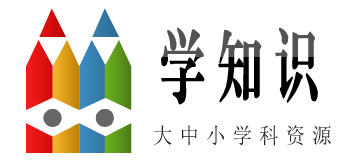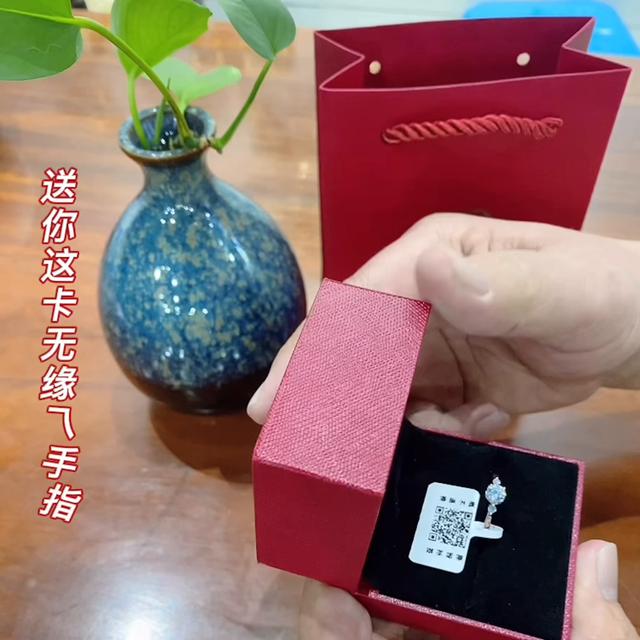名词性从句
[语境中体悟用法]
朗读下面短文,体会、领悟加黑连接词引导的是什么从句,在从句中作什么成分。
What worries my classmate, Mary, a lot these days① is that she puts on too much weight and is frequently ill②.She has some doubts whether she eats too much fast food high in fat or sugar③.Also, with the College Entrance Examination approaching, she becomes more stressful and she couldn't sleep well these days.Maybe this is also the cause that she becomes fatter these days④, she thinks. How she becomes slimmer and healthier⑤ has been her main task. So she wants to consult some experts and gain some instructions. But
where she could get better suggestions and who will give her better advice⑥ also puzzle her. It is her parents' suggestion that she should consult Professor Wang in Zhongshan Hospital⑦.Professor Wang suggests that she keep a balanced diet first⑧. She should eat vegetables and fruit high in fiber, vitamin and protein. What's more, if she wants to lose weight, she had better take regular exercise more than half an hour a day. Mary asked Professor Wang when she should take exercise⑨.Professor Wang advised her to take exercise at 5 o'clock in the afternoon because she will have more time to do sports.Thanks to Professor Wang, Mary has become much healthier now.
[用法体悟]
①为主语从句。What(=The thing that)在从句中作主语。
②为表语从句。从句本身意思完整,不缺任何句子成分。
③为同位语从句。补充说明doubt的具体内容,因doubt (疑惑)的意思本身是不确定的,故由whether引导。
④为同位语从句。说明the cause的具体内容。
⑤为主语从句。表示“如何”变得更苗条和更健康,故用how引导,how在从句中作方式状语。
⑥为主语从句。表示去“哪里”咨询、向“谁”咨询,故分别用where, who引导。
⑦为同位语从句。说明suggestion的具体内容,从句内容完整,不缺任何句子成分。
⑧为宾语从句。从句内容完整,不缺句子成分。
⑨为宾语从句。when在从句中作时间状语。
[系统中整合规则]
(一)主语从句
1.that引导的主语从句
that引导主语从句时,在从句中不作任何成分,也没有词汇意义,但一般不可省略。
That the earth goes around the sun is known to all.
众所周知,地球围着太阳转。
2.whether/if引导的主语从句
主语从句位于主句谓语动作前,表示“是否”,只能用whether。若用it作形式主语,则whether与if可互换。
Whether we can have clean drinking water lies in what effective measures will be taken by the government about water pollution.
我们能否有干净的饮用水依赖于政府对水污染将采取什么样的有效措施。
3.wh-类连接词引导的主语从句
wh-类连接词包括连接代词(who, whom, whose, what, whoever, whomever, whatever等)和连接副词(when, where, why, how, whenever, wherever, however等)。
What Barbara Jones offers to her fans is honesty and happiness.
芭芭拉·琼斯展现给她的粉丝们的是诚实和快乐。
4.it作形式主语的主语从句
有时为保持句子平衡,常用it作形式主语,而把主语从句后置。
It's no wonder that he didn't want to go.
难怪他不想去。
(二)宾语从句
1.that引导的宾语从句
that引导宾语从句时无词义,在从句中不作成分,口语中一般可以省略,但下列情况下不能省略:
(1)当that从句作介词的宾语时。
(2)动词后跟有多个that引导的宾语从句时,只有第一个that可以省略,从第二个从句开始that不可省略。
2.whether与if引导的宾语从句
whether与if引导宾语从句时,在从句中不作任何成分,但有具体的含义,意为“是否”。在下列情况下只能用whether而不能用if:
(1)宾语从句中有or not且直接跟在关系词后时,只能用whether。
I don't know whether or not the report is true.
=I don't know whether/if the report is true or not.
我不知道这个报道是否是真的。
(2)介词后的宾语从句要用whether,whether可与不定式连用。
It depends on whether we have enough time.
这取决于我们是否有充足的时间。
They don't know whether to go there.
他们不知道是否去那里。
3.连接代词和连接副词引导的宾语从句
连接代词和连接副词引导宾语从句时既充当句子成分又有具体词义,且不可省略。
Our teachers always tell us to believe in what we do and who we are if we want to succeed.
我们的老师总是告诉我们,如果想成功的话,就要相信我们所做的事以及我们自己。
4.it作形式宾语的宾语从句
(1)一些动词后的宾语从句有宾语补足语时,则需要用it作形式宾语,而将宾语从句后置。常见的这类动词有find, think, consider, believe, guess, suppose, make等。
He has made it clear that the meeting will not be postponed.
他清楚地表明会议不会被推迟。
(2)hate, like, dislike, appreciate, enjoy等表示“喜欢”“厌恶”的动词以及一些动词短语see to, depend on, rely on等后面常用it作形式宾语,而将宾语从句后置。
I shall see to it that he is taken good care of when you are absent.
你不在的时候,我负责把他照顾好。
(三)表语从句
1.that/whether/as if (though)/because/why引导的表语从句
(1)that, whether引导的表语从句。
在表语从句中,that无词义,一般不能省略;whether意为“是否”。
The problem is whether the air pollution can be controlled.
问题是空气污染能否被控制住。
(2)as if/though引导的表语从句,有时可用虚拟语气。
The thick smog covered the whole city.It was as if/though a great black blanket had been thrown over it.
厚重的烟雾覆盖着整座城市,好像一个巨大的黑色毯子扔到它的上面。
(3)because, why引导的表语从句。
This/That is because …这/那是因为……(This/That is why …这/那就是为什么……)
He failed.That is because he didn't work hard.
他失败了。那是因为他没有努力工作。
2.连接代词、连接副词引导的表语从句
(1)连接代词有:who, whom, whose, what, which, whoever, whomever, whosever, whatever, whichever等。连接代词在从句中作主语、宾语、表语或定语。
(2)连接副词有:when, where, why, how, whenever, wherever, however等。连接副词在从句中作状语。
I'd like to start my own business — that's what I'd do if I had the money.
我愿意自己创业——那就是如果我有钱将会做的事情。
That was where we camped last time.
那就是我们上次野营的地方。
(四)同位语从句的连接词
同位语从句在句中作某一名词(news, fact, idea, desire, suggestion, promise, information等)的同位语,一般位于该名词之后,说明该名词的具体内容。引导同位语从句的连接词主要有that, whether, why, who, where, how, when等。在同位语从句中,that和whether不作成分,that无词义,whether表示“是否”;if不能引导同位语从句。引导同位语从句的连接词一般都不能省略。
The report that he was going to resign was false.
他将辞职的报道是假的。
[集训中明晰考点]
考点1 连接词that与whether/if
(1)that只起连接的作用,无词义,不充当句子成分;在宾语从句中可以省略,但在主语从句、表语从句、同位语从句中不能省略;
(2)连接词whether表示“是否”,只起连接的作用,不充当句子成分,在部分宾语从句及it作形式主语的主语从句中可以替换成if。
1.(2021年1月新高考8省联考卷改编)The magician's success depends on the fact ________ many things seen by the eye are not the things that matter.
解析:that 句意:魔术师的成功取决于这样一个事实:眼睛看到的很多东西都不是重要的东西。分析句子成分可知,the fact后为同位语从句,从句不缺成分,句意完整,故填that。
2.Oliver says if you're lucky enough to have someone close to you who enjoys cooking, ask them ________ you can join in when it's possible.
解析:if/whether 分析句子结构可知,“________ you can join in when it's possible”为宾语从句,且从句成分完整,表示“问他们是否你可以加入”,所以填if/whether。
3.It is possible ________ caffeine may cause birth defects (缺陷) in humans, too.
解析:that 分析句子结构可知,该句是一个主从复合句,it作形式主语,真正的主语是设空处引导的从句,且空处在从句中不作任何成分,故填that。
考点2 连接代词
连接代词who, whom, whose, what, which等不但起连接作用,也在从句中作名词或代词所作的成分,如主语、表语、宾语、定语等。如果缺少连接代词,则从句不完整。
1.Going to Mount Huangshan reminds me of the popular Beatles' song “The Long and Winding Road”.________ is so breathtaking about the experience is the out-of-this-world scenes.
解析:What 分析句子成分可知,“________ is so breathtaking about the experience”是主语从句,空处在从句中作主语,表达“……的事物”的意思,且位于句首。故填What。
2. (2020·浙江7月高考) Over thousands of years, they began to depend less on ________ could be hunted or gathered from the wild,and more on animals they had raised and crops they had sown.
解析:what 句意:经过了几千年,他们开始较少地依靠野外猎取或采集的东西,而更多地依靠他们饲养的动物和播种的农作物。分析句子结构可知,______ could be hunted or gathered from the wild作depend on的宾语,且从句中又缺少主语。表示“……的东西”,因此填连接代词what。
3.I'm not sure ________ is more frightened, me or the female gorilla (大猩猩) that suddenly appears out of nowhere.
解析:who 句意:我不确定谁更害怕,是我还是那只不知从何处突然蹦出来的雌性大猩猩。根据句意和句子结构可知,空处引导宾语从句,并在从句中作主语,表示“谁”,故填who。
4.In her panic she couldn't remember _____ was Mr Grainger's cabin.
解析:which 空处引导宾语从句并在从句中作主语,表示“哪一个”,应填which。
连接副词how, when, where, why不但起连接作用,且在从句中作状语,表示方式、时间、地点和原因等。
考点3 连接副词
1.That's ________ I have a membership at the coworking space across the street — so I can focus.
解析:why 分析句式结构可知,该空应填引导表语从句的连接词,该连接词在从句中作状语,根据语境可知填why。
2.At this point,it is not clear ________ dogs seem to be equipped with the ability to recognize different facial expressions in humans.
解析:why 分析句式结构可知,该空应填引导主语从句的连接词,该连接词在从句中作状语,根据语境可知填why。
3.What students do at college seems to matter much more than ________ they go.
解析:where 此处表示“学生们在大学里做什么似乎要比去哪里上大学更重要”,空处在从句中作地点状语,故填where。
4.By boat is the only way to get here, which is ________ we arrived.
解析:how 句意:坐船是到达这里唯一的方式,这就是我们如何到达的。how 引导表语从句,并在从句中作方式状语。
此类连接词有whatever, whoever, whichever, whenever, wherever, however等,不但起连接作用,而且在从句中充当主语、宾语、表语、定语、状语等。
考点4 “疑问词+-ever”类连接词
1.This actor often has the first two tricks planned before performing,and then goes for ________.
解析:whatever 句意:这个演员时常在表演前就计划好前两个技巧,然后全力以赴。此处作介词for的宾语,表示无范围的选择,故用whatever。此处可视为名词性从句的省略,即...goes for whatever he wants。
2.My grandmother helped me believe that I could accomplish ________ I put my mind to.
解析:whatever 句意:我的祖母帮助我相信我能完成我下定决心要做的任何事情。这是一个含有宾语从句的复合句,且引导词在从句中作介词to的宾语,表示“无论什么,任何事情”,故用whatever。
3.The gold medal will be awarded to ________ wins the first place in the bicycle race.
解析:whoever 句意:这块金牌将被授予在这场自行车比赛中获得第一名的人。介词to后是宾语从句,从句中缺主语且表示“人”,因此填whoever引导宾语从句并在从句中作主语。
[自测中查漏补缺]
Ⅰ.单句语法填空
1.We had to carry everything we needed and walk three miles to where we worked.
2.It is not a problem whether/if we can win the battle; it's just a matter of time.
3.Without his support, we wouldn't be where we are now.
4.This is what my father has taught me — to always face difficulties and hope for the best.
5.Whether Tom will win the computer competition remains a secret till next Monday.
6.He called attention to the fact that many files were missing.
7.I will send the entertaining and informative books to whoever needs them.
8.I was late this morning.That was because I was held up in a traffic jam.
Ⅱ.完成句子
1.He is a far cry from what_he_used_to_be.
他与过去的他大不相同了。
2.Many parents often give their children whatever_they_want.
很多父母经常给孩子们他们想要的任何东西。
3.It's_no_wonder_that you have achieved so much success.
难怪你取得了这么大的成功。
4.The question is how_we_can_do_the_work_better.
问题是我们如何才能将这项工作做得更好。
5.Whoever_leaves_the_room last ought to turn off the lights.
最后离开房间的人应该关灯。
Ⅲ.语法填空
Today, Mount Qomolangma's peak is not a lonely place any more.Over 3,500 people have __1__ (successful)climbed the mountain over the past year.Meanwhile, climbers have complained about __2__ (wait)for hours in the bottlenecks.
In fact,the dangerous __3__ (crowd)aren't the only problem.All those climbers need __4__ (bring)a lot of gear (设备), much of which ends up being left on the mountain.It is becoming the world's __5__ (tall) rubbish dump.
But the good news is __6__ some mountaineers have started to clean up Qomolangma.Mountaineers Paul and Eberhard are part of Eco Everest Expedition, which has been cleaning up rubbish since 2008.So far they __7__ (collect) over 13 tons of garbage.
Some of that rubbish is even being used for __8__ higher purpose.As part of the Mount Everest 8,848 Art Project,a group of 15 artists from Nepal collected 1.5 tons of garbage.They've changed the cans and oxygen tanks into 74 pieces of art that have already been exhibited __9__ Nepal's capital.Part of the profit from sales __10__ (be)available for the Everest Peakeers Association which has helped collect rubbish off the mountain.
语篇解读:文章主要介绍了珠穆朗玛峰的污染情况以及现在采取的应对污染的措施和取得的成效。
1.successfully 考查副词。修饰动词climbed应用副词,故填successfully。
2.waiting 考查非谓语动词。此处位于介词about之后应用动名词形式,故填waiting。
3.crowds 考查名词复数。根据空前的形容词dangerous可知,空处应用名词形式,crowd “人群”为可数名词,且句子的谓语aren't为复数形式,所以应用复数形式crowds。
4.to bring 考查非谓语动词。此处表示所有那些登山者都需要带着大量设备,故此处用need to do sth.“需要做某事”。
5.tallest 考查形容词的最高级。根据句中的the world's“全世界范围内的”可知,此处表示最高级的含义,故用形容词最高级tallest。
6.that 考查名词性从句。分析句子结构并结合语境可知,空处引导表语从句,引导词在从句中不充当成分,仅起连接作用,故用that引导该从句。
7.have collected 考查动词的时态和主谓一致。根据句中的时间状语So far可知,此处表示截止到现在已收集的垃圾数量,所以应用现在完成时;又主语they为复数,故填have collected。
8.a 考查冠词。此处表示“一个更高的目标”,表泛指,在文中第一次提到,且higher的发音以辅音音素开头,故用a。
9.in 考查介词。根据语境可知,此处表示“在尼泊尔的首都”,故填in。
10.is 考查动词的时态和主谓一致。根据语境可知,此处为一般性描述,应用一般现在时;该句主语为“Part of the profit from sales”,此处表示单数概念,应填is。










